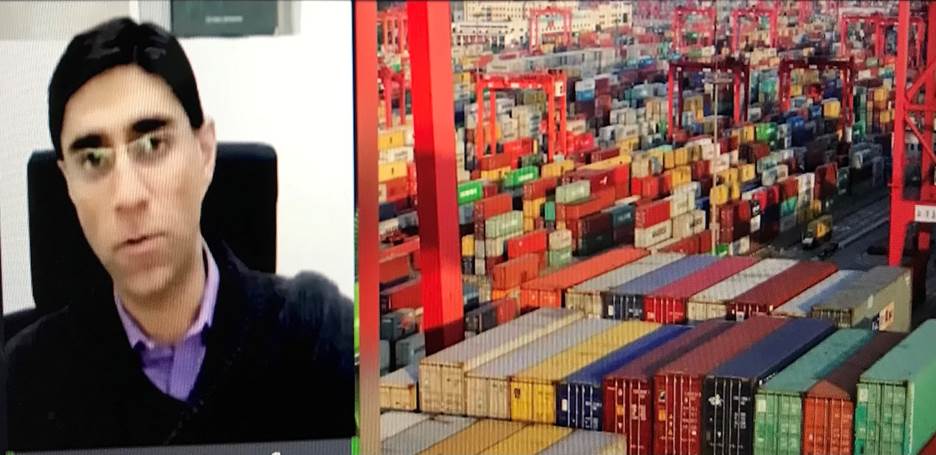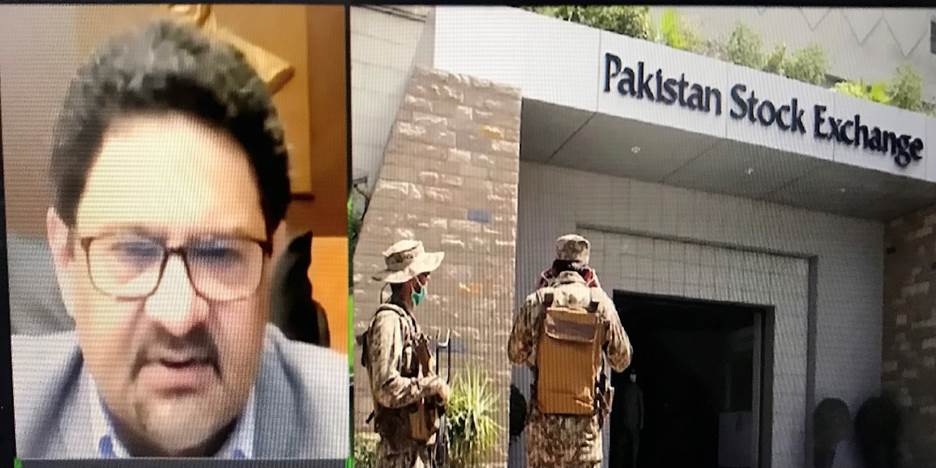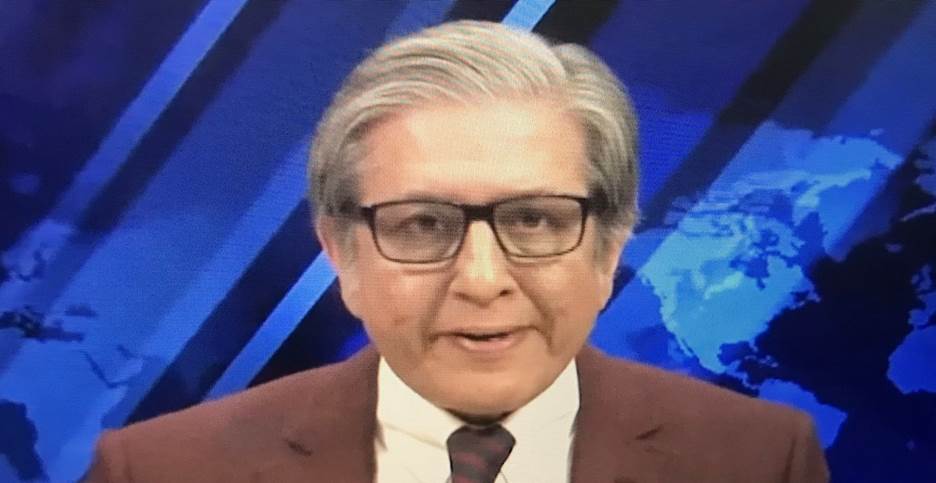
Dr Moeed Yusuf

Miftah Ismail

Ejaz Haider
Miftah Ismail, Moeed Yusuf Discuss Ways Forward for Pakistan
By Elaine Pasquini

Washington: The Center for Security, Strategy and Policy Research, an autonomous policy research center at the University of Lahore, hosted the January12 episode of “InFocus with Ejaz Haider” featuring Dr Miftah Ismail, former Pakistani finance minister in the current coalition government, and Dr Moeed Yusuf, national security advisor to former Prime Minister Imran Khan. Haider noted that both men were appearing as experts in their respective fields, rather than as ministers in two different political governments.
Opening the conversation, moderator Haider ran down the list of Ismail’s well-known concerns about Pakistan, including the poor quality of education, wasteful spending by the government, the importance of women’s participation in the workforce, opposition to artificial exchange rates, subsidies, big infrastructure and putting state interests above petty political bickering, along with managing Pakistan’s population growth.
Of these numerous issues the country is facing, Ismail stated the immediate concern is to get back on track with the International Monetary Fund. Along with the rest of the world, Pakistan has suffered high inflation, high interest rates and commodity prices, all partly caused by Russia’s war on Ukraine. “This is a perfect storm for Pakistan in terms of the difficulties it is facing,” he said.
Ismail argued that Pakistan needs to do things differently than have been done over the past decades. The idea of Pakistan being a “security state,” referring to the late former president Gen Pervez Musharraf aligning with the West after 9/11, has meant that “we’ve lost on economic development,” he explained. “And once you don’t have economic development you can’t even have security, so now we don’t have either. But we can’t escape geography, and we are in a way in a difficult neighborhood.”
Despite having “some of the finest bureaucrats…nothing happens,” Ismail lamented. “We have to rethink Pakistan and rethink how we do things.” One problem, he noted, is that Pakistan is too much of an “elite republic” with the elite just wanting to “maintain the status quo and not interested in growth.” But with a majority of Pakistan’s youth saying they want to leave the country, “we have to do things differently if we want young people to stay in Pakistan,” he asserted. “We should pursue growth. Things that enable growth should be pursued and things that don’t enable growth we should not go for.”
Building a new coalition that “brings young people’s interests into the mix and pursues growth and development as opposed to just the status quo” would be helpful, he said.
In addition, he added, while “everyone pays lip service” to having law and order, “we still don’t have it.”
Ismail criticized Pakistan’s continual borrowing of money, noting the prime minister had a recent $1 billion commitment from the United Arab Emirates. “Hopefully, the elite will soon realize continually borrowing money “is really not how to run a country and that we have a serious deficiency in our governance model,” he said.
We need to “rethink exactly what our objectives are for our nation,” and, additionally, “our relationships with our neighbors” – besides India, also Afghanistan and Iran, Ismail said.
Yusuf agreed with Ismail that Pakistan’s economic model has been based on the flawed premise that, due to Pakistan’s security relevance in the geopolitical world, the funds [from the US] coming into the country during times of war and after 9/11 would continue.
But now with US-led troops out of Afghanistan, Pakistan has lost “geopolitical and geostrategic relevance,” he said. “Because of the great power competition between the US and China…and India becoming the darling to the West, we don’t have that kind of cachet left.”
Moving forward with a new model is difficult, however, if old habits are not discontinued, Yusuf pointed out. “If you keep doing that, the result is what we are today.”
Pakistan’s ongoing economic crisis is painful to him, Yusuf acknowledged. “It hurts me when our national conversation is about whether we will default or not default [on Pakistan’s $10 billion debt payment due June 1]. And “it hurts me…when we never talk about issues. We can’t seem as a nation to get past the next two months…and talk about the real issues.”
To improve the economy, Yusuf recommended privatizing state-owned enterprises that are “loss-making and… are not going to be able to be turned around.” His second recommendation is to find a way past the circular debt (a public debt of unpaid government subsidies resulting in accumulation of debt on distribution companies) and losses resulting therefrom. And Pakistan needs export growth, he said, calling particularly for more foreign direct investment. All of these things require reorienting “diplomacy towards economic diplomacy.”
In terms of the way forward, both experts agreed on the need to accept the results of free and fair elections. “Unless there is stability after the elections,” Yusuf said, “much of the economic agenda will take the backseat again.”
Yusuf and Ismail also stressed the importance of empowering local governments, including with fiscal responsibility.
They also spoke of increasing coordination with provincial governments. “We must use our inter-provincial coordination mechanisms to the hilt,” Yusuf insisted. “The culture of common interests is a real platform that needs to be empowered” to make sure the provinces work together instead of being divisive.
In closing, Yusuf pointed out the importance of citizenry. “We’ve regressed into a society that doesn’t follow even the basic principles of citizenry,” he bemoaned. “Are we teaching our kids not to litter? Are we telling our kids that corruption is bad? Is the school curriculum teaching civics? Is there any public diplomacy campaign around civics in this country?”
The important conversation in Pakistan should be around how to be a citizen, he said. “We have to get civics on everybody’s mind…without focusing on the society and changing that, we are not going to get to where we need to go.”
(Elaine Pasquini is a freelance journalist. Her reports appear in the Washington Report on Middle East Affairs and Nuze.Ink.)

